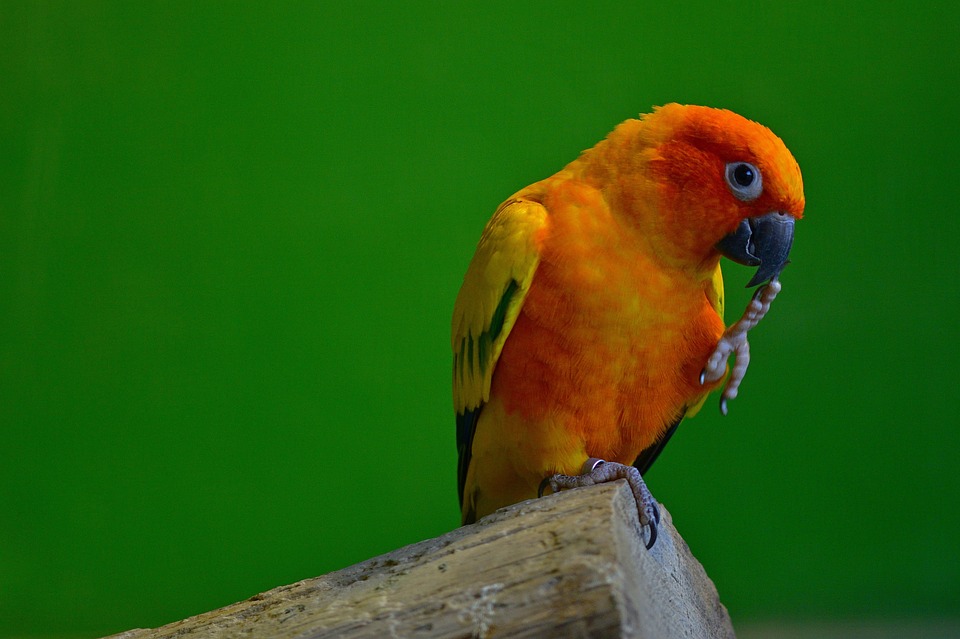Understanding Parrot Behavior: The Importance of Socialization
Introduction:
The intriguing world of parrot behavior is a fascinating field of study that continues to captivate researchers and pet owners alike. These intelligent and colorful creatures have complex behaviors that are shaped by various factors, with socialization playing a crucial role. In this article, we will explore the significance of socialization in shaping parrot behavior and discuss common behavioral issues that can arise when socialization is lacking.
I. The Role of Socialization in Parrot Behavior:
A. What is socialization?
Socialization refers to the process by which parrots learn to interact and communicate with their environment, including humans and other animals. It plays a vital role in shaping their behavior, as it helps them develop appropriate social skills and adapt to new situations.
B. Early socialization: The crucial period
The early stages of a parrot’s life are critical for socialization. During this period, which typically lasts from 3 to 12 weeks, parrots are highly receptive to learning and forming social bonds. Positive experiences during this time lay the foundation for their future behavior and ability to trust humans and other animals.
C. Positive socialization experiences:
Positive interactions with humans and other animals are essential for a well-socialized parrot. These experiences help them develop trust, learn appropriate behaviors, and form healthy social bonds. Regular handling, gentle touch, and positive reinforcement training are effective techniques for promoting positive socialization.
D. Negative socialization experiences:
On the other hand, neglect or mistreatment can have serious consequences on a parrot’s behavior. It can lead to fear, aggression, or a lack of trust towards humans and other animals. It is crucial to avoid any negative experiences or harsh training methods that can undermine a parrot’s socialization.
E. Socialization techniques:
There are several techniques that can be used to promote socialization in parrots:
1. Positive reinforcement training: Using rewards and treats to encourage desired behaviors can help reinforce positive socialization experiences.
2. Controlled exposure to new environments and stimuli: Gradually introducing parrots to new environments, objects, and sounds can help them become familiar and comfortable with different situations.
3. Encouraging social interactions with other parrots and humans: Regular playtime and interaction with other parrots and humans can help parrots develop social skills and build positive relationships.
4. Providing a stimulating and enriching environment: Offering a variety of toys, puzzles, and activities can keep parrots mentally stimulated and prevent boredom, which can lead to behavioral issues.
II. Common Parrot Behavioral Issues:
A. Screaming and vocalizations:
Excessive noise-making is a common behavioral issue in parrots. Understanding the reasons behind their vocalizations, such as attention-seeking or boredom, can help manage and redirect this behavior through positive reinforcement techniques and providing alternative forms of stimulation.
B. Biting and aggression:
Biting is another common issue that can stem from fear, territoriality, or lack of trust. Identifying triggers and using positive reinforcement training techniques can help prevent and address biting incidents.
C. Feather plucking and self-mutilation:
Feather plucking and self-mutilation are self-destructive behaviors often associated with stress, boredom, or medical issues. Creating an environment that promotes healthy feather maintenance, addressing underlying causes, and providing mental stimulation can help alleviate these behaviors.
D. Territorial behavior:
Parrots can exhibit territorial aggression, especially during breeding seasons or in response to perceived threats. Recognizing signs of territorial aggression and establishing boundaries can help manage this behavior and create a harmonious living environment.
FAQs (Frequently Asked Questions):
1. How long does the socialization period last for parrots?
The critical socialization period for parrots typically lasts from 3 to 12 weeks, but socialization should continue throughout their lives.
2. Can adult parrots be socialized?
While it may be more challenging, adult parrots can still benefit from socialization experiences and training.
3. Are certain parrot species more prone to behavioral issues?
Some parrot species, such as African Greys and Cockatoos, are known to be more prone to behavioral issues. However, proper socialization can help mitigate these tendencies.
4. Can socialization prevent parrots from developing aggressive tendencies?
Positive socialization experiences can greatly reduce the likelihood of parrots developing aggressive tendencies. However, individual temperament and genetic factors may also play a role.
5. What are some signs that indicate a parrot is not properly socialized?
Signs of insufficient socialization include fear or aggression towards humans or other animals, excessive vocalizations, feather plucking, and self-destructive behaviors.
6. Can parrot socialization help with excessive screaming or vocalizations?
Yes, providing proper socialization experiences and mental stimulation can help redirect excessive vocalizations and provide alternative forms of entertainment.
7. Is it possible to reverse negative socialization experiences in parrots?
While it may take time and patience, it is possible to reverse negative socialization experiences through positive reinforcement training and gradually building trust.
8. How can I provide mental stimulation for my parrot to promote socialization?
Offering a variety of toys, puzzles, and activities, as well as regular interactions with humans and other parrots, can provide mental stimulation and promote socialization.
9. Are there professionals who specialize in parrot behavior and socialization?
Yes, there are professionals, such as avian veterinarians and certified parrot behavior consultants, who specialize in parrot behavior and socialization.
Conclusion:
Understanding and addressing parrot behavior requires a deep appreciation for the importance of socialization. By providing a nurturing and stimulating environment, parrots can develop healthy social skills, trust, and appropriate behaviors. Continued learning and research in the field of parrot behavior and socialization will further enhance our understanding and ability to care for these remarkable creatures.









